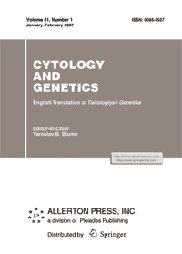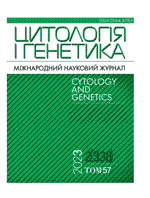SUMMARY. In order to investigate the levels of post-translational α-tubulin acetylation in Arabidopsis thaliana seedlings that were subjected to various abiotic stresses, such as salt and osmotic stress, starvation or ultraviolet-B, a Western blot analysis of α-tubulin acetylation was conducted. It was shown a significant increase in the levels of acetylated α-tubulin during the development of stress-induced autophagy. It should be noted, that the synergistic action of abiotic factors and the inhibitor of autophagy E-64 caused the decrease of aforementioned indicators. By means of immunohistochemical analysis of α-tubulin acetylation, it was demonstrated that this modification has a tissue-specific character, in particular, is most markedly manifested in young and meristematic tissues, as well as in root tissues (root cap, epidermis and pericycle cells). The obtained results can serve as confirmation of the regulatory role of α-tubulin acetylation in realization of autophagy as a response to the influence of abiotic stresses in plants.
Keywords:

